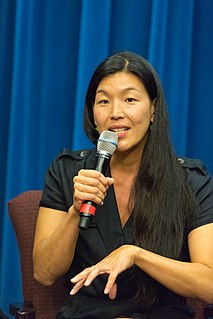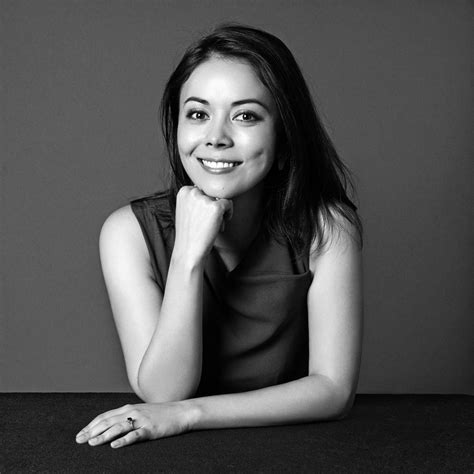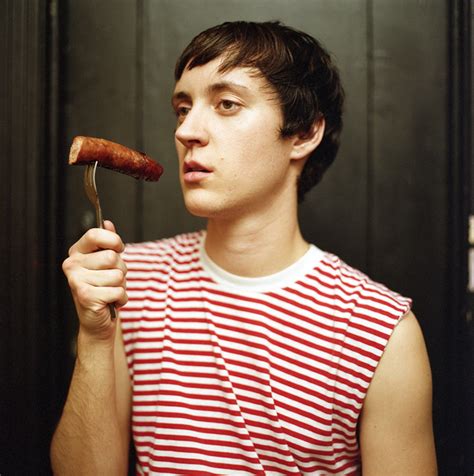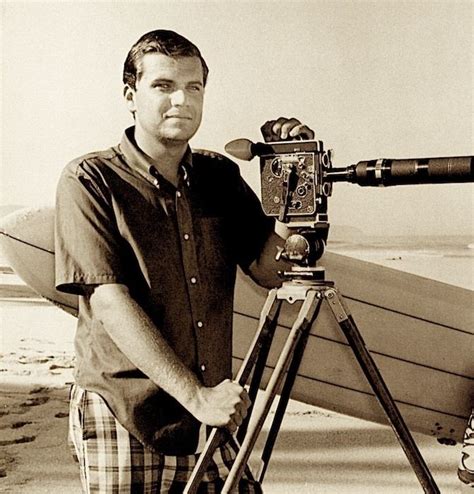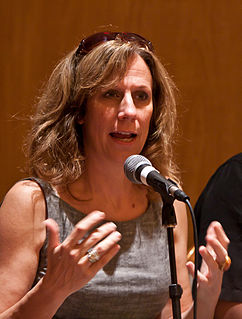A Quote by Ai-jen Poo
I think we really need a movement to drive how popular culture understands the issues that feminists care about. When I think about the LGBT movement for example, they have had a really intentional strategy to try to change images and representation of LGBT people in the media and the culture. It really moved the dial politically. That's what is needed in the women's movement - a strategy that can drive awareness and culture change.
Related Quotes
Rock-and-roll was an example of change in the body of the culture. I think it's really what helped bring the anti-war movement to its peak and moved people into the streets to seize the day - the movement was the embodiment of what was happening in the music. This is what taught me that it was possible to bring art and activism together. Without that piece, that energetic embodiment piece, the rest is just intellectual construct.
It really did take Billy Lucas's suicide to wake me up to, kind of, the damage of the success of the LGBT civil-rights movement - higher-profile LGBT people - has done to LGBT youth who are trapped out there in those shitholes. But I don't think we need Pride. I am still opposed, on philosophical grounds, to the flap of the rainbow windsock and the damage that does to us intellectually.
I think it's really important to champion stories from trans women and trans women of color. That demographic has gone unheard and unsupported for so long, and it's really the community that's struck the hardest by a lot of issues. I try to do a lot of work to champion trans feminine issues and stories, but that said, I do have a personal and deep investment in seeing trans masculine stories reflected in culture. It is a little disappointing to me that trans men and trans masculine people have not really been part of this media movement that we're experiencing right now.
In less than a century we experienced great movement. The youth movement! The labor movement! The civil rights movement! The peace movement! The solidarity movement! The women's movement! The disability movement! The disarmament movement! The gay rights movement! The environmental movement! Movement! Transformation! Is there any reason to believe we are done?
I really feel concerned about young people within our present culture. Our present culture, we have to change. Change is inevitable and I wasn't raised in our present culture but it has great pressure that as a young person I never had. Material pressure, social pressure, visual pressure, how you look, and I just try to appeal to young people to think for themselves, to be their own person, and to ask questions and also be very attentive to our planet and our environment.
When I grew up, feminism wasn’t something that was really talked about. There’s a really negative stereotype about feminism in the media. That really plays badly for young women understanding the movement. Maybe people don’t want to identify themselves as feminists because of the label. But people need to understand what feminism means and educate themselves before they reject it.
The great social justice changes in our country have happened when people came together, organized, and took direct action. It is this right that sustains and nurtures our democracy today. The civil rights movement, the labor movement, the women's movement, and the equality movement for our LGBT brothers and sisters are all manifestations of these rights.
It is easier to talk about issues; it is easier to say you're a feminist because it's actually awesome to be one. The panopoly of people identifying as feminists is really excellent now that we've come to a point where all these really interesting voices are rising up and saying they're feminists - women of color, trans people, gay folks, everybody. It's an exciting time to actually define as that because it means that people are really feeling like their voice is what's the most important thing in the movement, and I love that.
